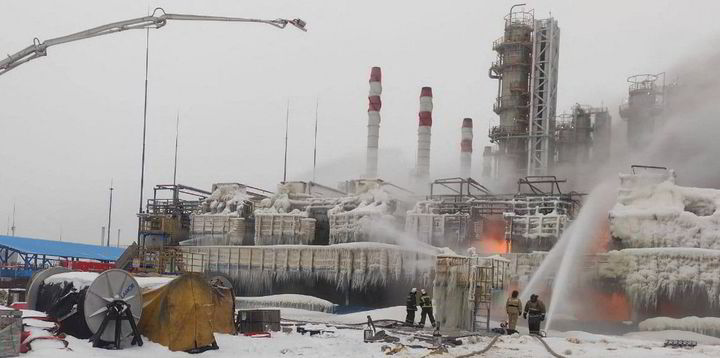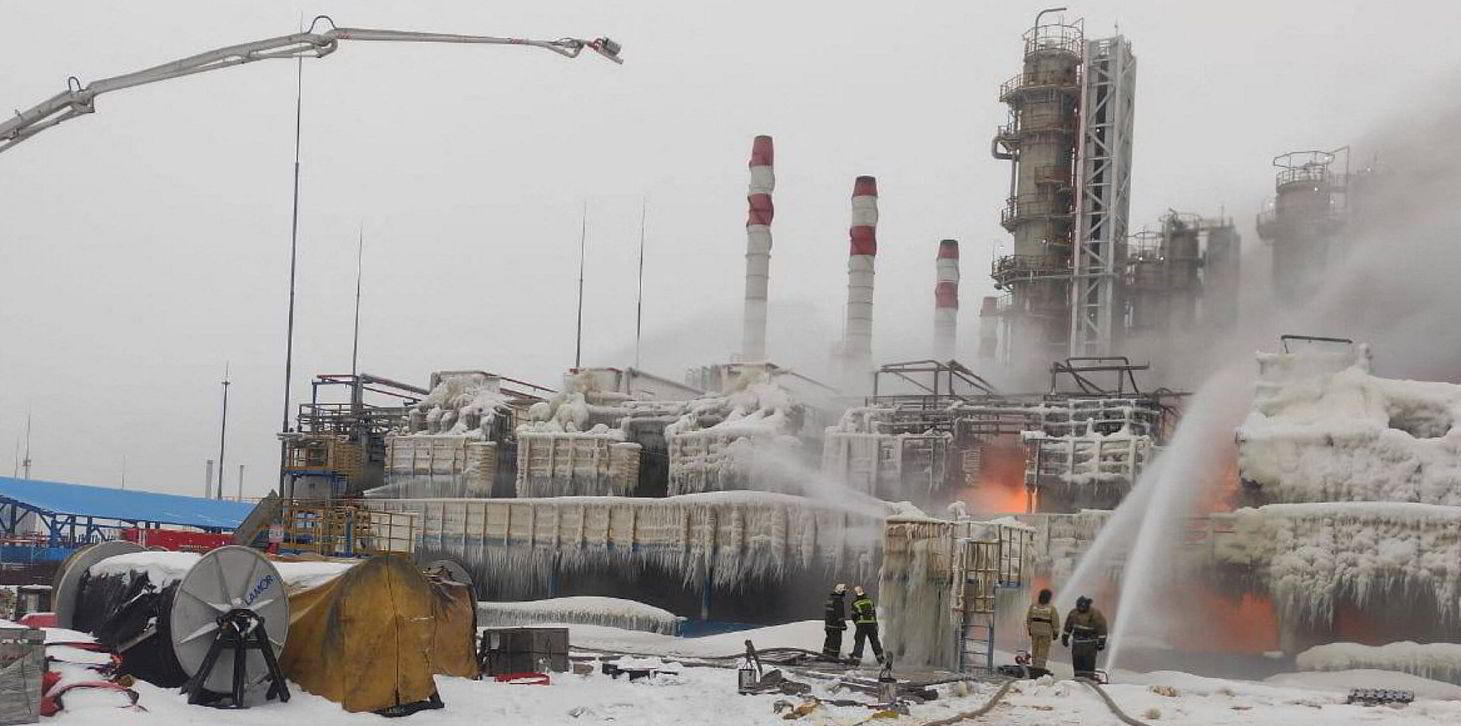Loadings of Russian and Kazakhstan oil onto marine tankers at Russia’s second key export terminal on the Baltic Sea, Ust-Luga, were at a standstill on Monday after captains ordered vessels to be pulled back to the sea due to security concerns, marine traffic data suggests.
At least two drones have been reported in Russian news outlets as being spotted over the gas condensate facilities operated by Russian producer Novatek before explosions took place, triggering widespread fire. The gas condensate plant is located next to the oil export terminal.
The Novatek facilities, where operations were suspended yesterday, and the terminal share a 2.5-kilometre long berth in Ust-Luga where tankers lifting oil, condensate and products moor.
Tankers were pulled back to sea in the early morning on Sunday, immediately after the first explosions took place.
At the time of publishing, no tankers have been seen moored at this berth, according to marine traffic data.
St.Petersburg-based news outlet Fontanka suggested on Sunday that the attack on the Novatek facilities interrupted the scheduled loading of crude oil into two tankers as the vessels were approaching the terminal, assisted by tugs.
Article continues below the advert
These two tankers, Clearocean Apollon and NS Champion, that have combined capacity of more than 1.6 million barrels of oil, remained moored at sea near Ust-Luga as of Monday morning.
Six more tankers have been seen moored to the north of the oil terminal as of Monday morning. The export terminal in Ust-Luga is the second busiest outlet after the oil port of Primorsk on the Baltic Sea, with exports from the site mainly heading to India and China.
The export facility handles sour and heavy oil from Russia and Kazakhstan, known at the market as the Urals blend, that is delivered to the plant via a dedicated trunkline operated by Russia’s state pipeline monopoly, Transneft.
According to Transneft, Russia exported about 680,000 bpd of Russian and Kazakh oil via the Ust-Luga export terminal, and another 890,000 bpd of Russian oil via the port of Primorsk, to international markets last year.
Transneft did not immediately respond to questions by Upstream on the oil loading operations.

